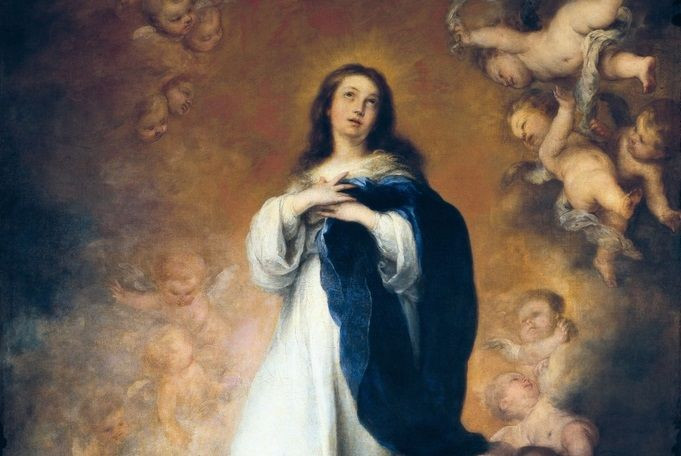
December 8, 2014, marks the Feast of the Immaculate Conception which in addition to kicking off the Christmas holiday season, celebrates the belief in the Immaculate Conception of the Virgin Mary. The feast is celebrated nine months before the feast of the Nativity of Mary on September 8 and serves as one of the most important holy days of obligation in the liturgical calendar of the Roman Catholic Church. The Feast of the Immaculate Conception signifies an important point of Catholic teaching beginning with who or what the Immaculate Conception refers to, while the popular belief is that the term refers to Jesus’ conception by the Virgin Mary, it actually does not. According to the teaching of the Catholic Church, the Immaculate Conception refers to the special way in which the Virgin Mary herself was conceived, Mary was conceived in her mother’s womb free from original sin.
Though normally confused with the virgin birth of Jesus, the Feast of the Immaculate Conception celebrates Mary’s creation by normal biological means, however God acted upon her soul, keeping her immaculate at the time of her conception. The creation of the Virgin Mary is explained in the Catechism of the Catholic Church, which states “the most Blessed Virgin Mary was, from the first moment of her conception, by a singular grace and privilege of almighty God and by virtue of the merits of Jesus Christ, Savior of the human race, preserved immune from all stain of original sin.” Thus meaning that God gave Mary a pure soul incapable of sinning when she was conceived, this gift from God prepared her to be the mother of Jesus Christ. However, this teaching does not appear in Scripture, and instead was decreed on December 8 in 1854 by Pope Pious IX.
In order to prepare for the holy day many prepare with nine full days of prayer, this act of devotion is known as “novenas.” Special prayers and hymns starting nine days before the Feast of the Immaculate Conception are offered to the Virgin Mary. In addition to the nine days of prayer, many attend mass on December 8 in part due to it being a holy day of obligation, but also to keep the tradition and teachings alive.
© 2025 Latin Times. All rights reserved. Do not reproduce without permission.





